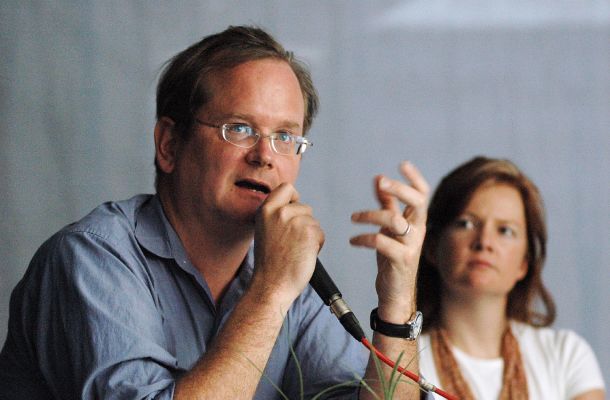The self-proclaimed super PAC to end all super PACs, MAYDAY has relied financially on tech moguls since it started its push to take money out of politics. The organization recently released a list of donors that gave more than $10,000, including some of Silicon Valley’s wealthiest players who gave the committee millions.
One of the tech sector’s most active political donors, Sean Parker, topped the list with a donation of $500,000. Prior to his MAYDAY donation, the Napster founder had spent about $4 million in political donations and announced his latest venture Brigade Media would focus on civic engagement.
Since MAYDAY’s launch, TED director Chris Anderson, LinkedIn co-founder Reid Hoffman, PayPal co-founder Peter Thiel and venture capitalists Fred and Joanne Wilson and Brad Burnham have been critical supporters. They were among the super PAC’s first stage donors, matching the $1 million MAYDAY raised in its first 13 days.
Anderson contributed $250,000, Hoffman and Thiel gave $150,000 and the Wilsons and Burnham donated $100,000.
Other notable members of the technological community on the big donor list included Ian Simmons, David Milner, Matt and Cindy Cutts, William Von Mueffling, Shawn Byers and Jonathan Soros.
As of August 2, the Super PAC had raised $7.8 million. The Super PAC launched a fundraising campaign to raise $5 million by July 4, that would be matched by a group of tech executives. Because the August 2 report does not include the matching donations MAYDAY promised, these numbers are fluid and will likely spike once MAYDAY includes the additional $5 million in its reports. Reuteurs reported in June Thiel, Hoffmann, Burnham, the Wilsons and Anderson agreed to donate $1 million apiece.
Despite the rollout of big donors, the Super PAC doesn’t seem to be following through on its commitment to transparency. On July 23 the Super PAC released what it called an “unprecedented” transparency plan, promising to post the names of all donors giving more than $200 every two weeks, rather than waiting until the FEC filing deadlines. However the PAC has since hedged on that decision, instead only listing the donors breaking the $10,000 mark to protect others’ privacy. As Recode noted, that information is available in the FEC filings, but MAYDAY leader Larry Lessig said a volunteer and his lawyers feel posting that information publicly on its own website was different.
Lessig thinks the tech community has been so invested in the PAC because rather than play into the system of campaign funding, they want to change the rules.
“They (and we all) should see that the nation need innovators innovating in the market, not innovating on K St (the home of lobbying),” Lessig told TechCrunch. “They should be focused on finding new and better iWidgets, not new loopholes to add to scam the tax code.”
Apple co-founder Steve Wozniak was notably missing from the list and the PAC’s most recent FEC filing, despite appearing in a video campaign for MAYDAY explaining why campaign finance law reform matters to the tech industry. He highlighted several areas he thinks big money in politics has failed the tech industry, ranging from net neutrality to the “overreach of the NSA.”
The heavy donations from the tech set have not seem to govern the races MAYDAY has decided to back. The two candidates MAYDAY has announced do not have robust backgrounds in technological issues. Despite committing to release the names of the candidates it would back in the midterm elections by mid-July, MAYDAY still needs to release the names of three more candidates it will support. TechCrunch will track how these donations influence election outcomes in November.
